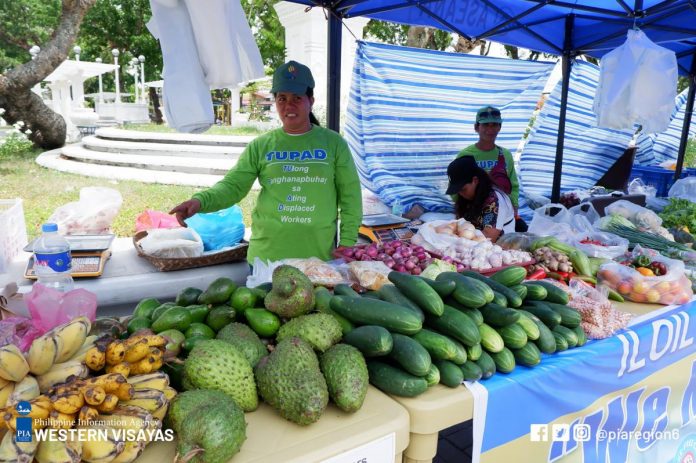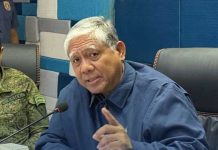
ILOILO City – The Department of Agriculture (DA) Region 6 urged the public to support Kadiwa stores that offer cheaper local products from farmers.
The Kadiwa ng Pangulo (KNP) is a market linkage facilitation program that enables farmers to sell directly to consumers and remove market layers. It aims to make agri-fishery products accessible at affordable prices and to establish additional markets for smallholder farmers and/or farmer cooperatives.
This program is in collaboration with other government agencies like the Department of Trade and Industry (DTI), Department of Labor and Employment (DOLE), Department of Social Welfare and Development (DSWD), and local government units (LGUs), among others.
Maria Teresa Solis, chief of the DA-6 Agribusiness and Marketing Assistance Division, said there are three Kadiwa stores in the region open from Monday to Sunday.
These are located in Tigbauan, Iloilo, managed by Kooperatiba Naton; in Patnongon, Antique managed by Kalipunan ng mga Magsasaka ng Patnongon (KAMAPAT); and in Bacolod City managed by the Multi-Sector Alliance for Development.
A Kadiwa rolling store could also be found roaming around district plazas in Iloilo City.
The Aklan provincial capitol’s Kadiwa store is open every Friday.
What can be bought in Kadiwa stores?
The products produced by farmers’ associations in Kadiwa are sold cheaper by up to P10 to P15 compared to market prices.
Among the many products sold are local rice, vegetables, root crops, and fruits.
Kadiwa stores were born at the height of the coronavirus pandemic to provide a venue for local farmers to sell their products and, at the same time, bring the products closer to the buyers.
“Sang pandemic close ang markets, so nag-direct ang central office sang DA nga mag-establish sang Kadiwa stores,” Solis said in an interview with Panay News.
She explained that farmer associations manage the Kadiwa stores to ensure that there is sufficient supply of local products. If the associations ran out, they would buy from individual farmers.
As of now, DA-6 has no plans to expand Kadiwa stores to other areas since high market prices are not a problem in the region, unlike in other areas of the country.
“”Sa Region 6 indi gid man tama kadamo sang Kadiwa [stores] kay tungod indi man tama kamahal sang mga baligya diri. Daw indi man problema gid sa aton ang sobra kataas nga price, pero sa Metro Manila kinahanglan nila ang Kadiwa stores,” said Solis.
She added: “Buligan ta gid ang aton farmers kay daku gid sa ila kon magbakal kita sa ila. Kamo man may ara man makuha nga benefits kay mas barato kag sigurado nga preska,”
Recently, President Ferdinand “Bongbong” Marcos Jr. said he is eyeing increasing the number of Kadiwa stores in the country to address soaring food prices.
The President, who also serves as DA secretary, said this would not only help Filipinos cope with the effects of rising food prices but also increase the income of local farmers, fisherfolk and small enterprises.
“We will continue to do this (Kadiwa stores), we will add more, expand. It is important to put up more of these, especially in areas where people cannot afford the prices in the markets,” the President said in Filipino.
“So this is our answer to the food crisis and price increase.”
The Kadiwa program is a farm-to-consumer market chain. It allows local producers to generate a higher income by selling their produce directly to consumers.
The President said there are more than 500 Kadiwa stores throughout the country.
The Kadiwa market, introduced during the term of Marcos’ late father, former president Ferdinand Marcos Sr., aims to provide a market for local farmers, fishermen and small business enterprises selling produce and basic necessities.
Marcos earlier said the revival of his father’s Kadiwa program is part of his strategies as agriculture secretary to help ordinary people amid the rising prices of commodities. (With reports from Philippine Information Agency Region 6 and Philstar.com)/PN





